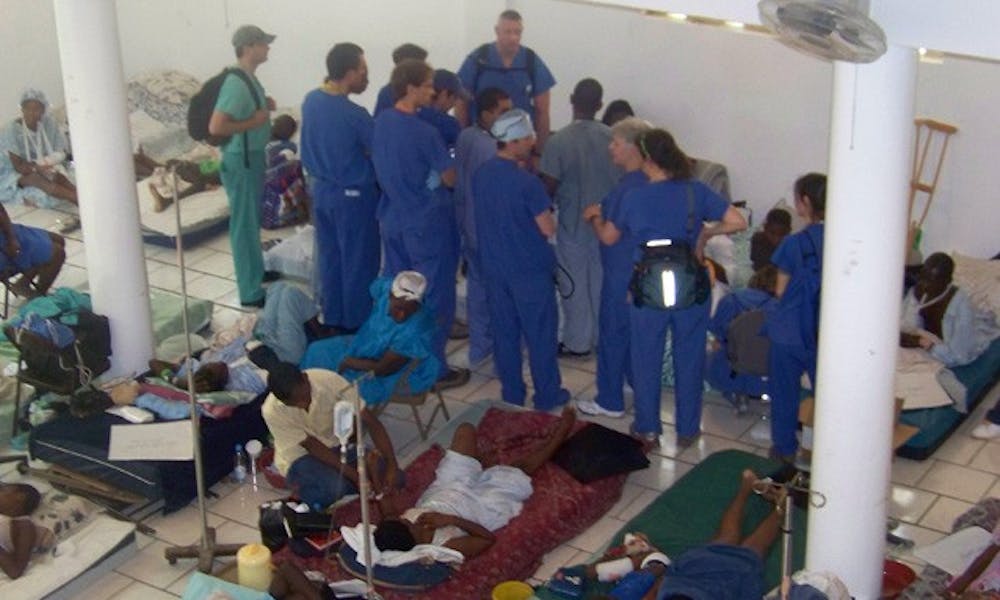This Saturday, the Duke University Health System will send its second medical team to Haiti in an ongoing effort to provide health care aid to the earthquake-devastated country.
The new team will continue the work started by the first group, supporting a Partners in Health hospital in Cange, Haiti. PIH is a global health organization co-founded by Duke Trustee Dr. Paul Farmer, Trinity ’82. The first team of 14 medical professionals returned Feb.15.
Physicians who returned from Haiti last week recounted their experiences, shedding light on issues the new team will face.
In their work in both Cange and the Haitian capital city of Port-au-Prince, team members treated earthquake victims, though they also saw routine “run-of-the-mill” cases, said team member Dr. David Macleod, assistant professor of anesthesiology.
“We were treating mostly people who’d had their injuries dealt with,” Macleod said, adding that most patients had initially sustained crush injuries or falls. “We did wound management—[treating] amputations and lacerations, which are prone to infection and poor healing.”
Although the hospital in Cange was well operated and relatively unscathed by the earthquake, the team faced additional challenges at the Port-au-Prince hospital, Macleod said.
For safety reasons, many patients prefer to reside in tents rather than unstable buildings hit by the earthquake, Macleod noted. And with inadequate medical equipment and frequent electrical failures, conditions were grim.
“People were barely surviving,” said team member Dr. Mark Shapiro, a trauma surgeon who served on the team. “The smell of blood and pus and urine was ubiquitous. There were rats running everywhere the size of small cats.... These folks were either going to live or die.”
Dr. Cameron Wolfe, an infectious diseases physician, said the team must be prepared to address patients’ evolving needs.
As time passes, the medicine and necessary care will change, Wolfe said. And as the demand for acute surgeries and trauma treatment decreases, rehabilitation and long-term therapy will become more important, he added.
“I also think what we started to see and what will probably be a large issue was the effect of malnutrition and lack of food,” Wolfe said, adding that poor sanitation and the impending rainy season will bring new challenges for the new team.
Get The Chronicle straight to your inbox
Signup for our weekly newsletter. Cancel at any time.

